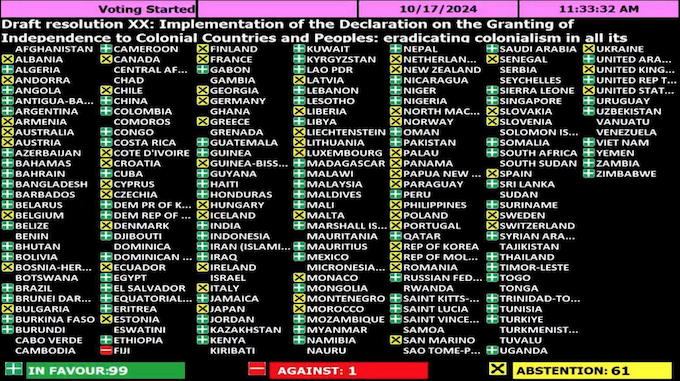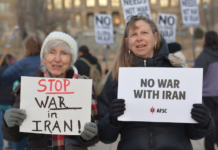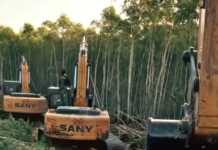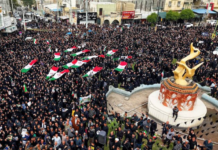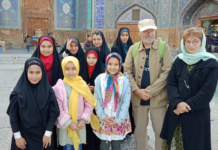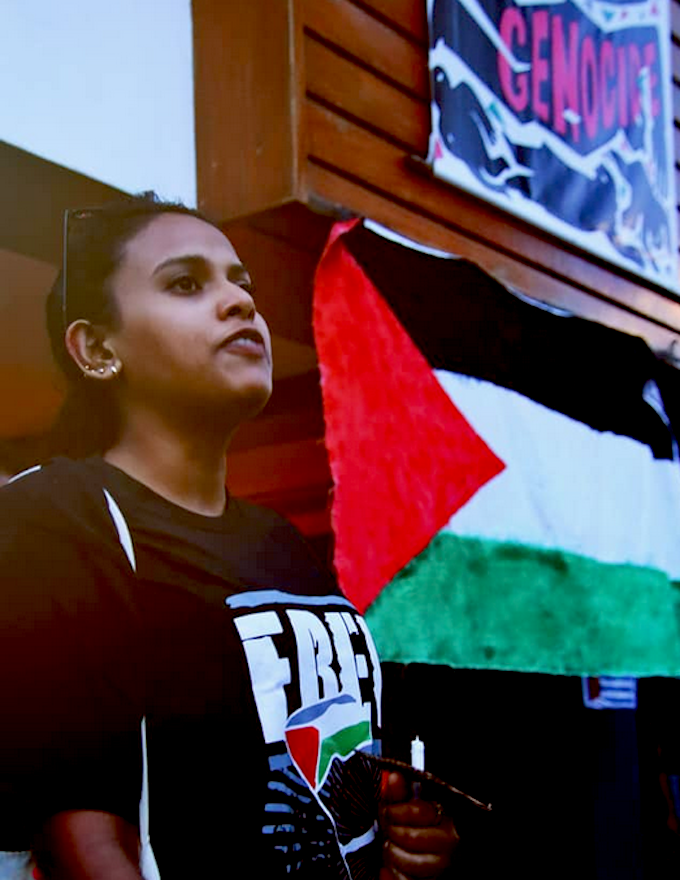
Prime Minister Sitiveni Rabuka has “cleared the air” with the Fijian diaspora in Samoa over Fiji’s vote against the United Nations resolution on the Implementation of the Declaration on the Granting of Independence to Colonial Countries and People.
He denied that Fiji — the only country to vote against the resolution — had “pressed the wrong button”.
And he described last week’s vote as an “ambush resolution”, claiming it was not the one they had agreed on during the voting of the UN Special Committee of Decolonisation, reports The Fiji Times.
- READ MORE: Rabuka’s message to free Kanaky movement: ‘Don’t slap the hand that feeds you’
- ‘We’ll be talking about the future of negotiations’, says Rabuka on New Caledonia mission
- Other Kanaky New Caledonia reports
- Other CHOGM reports
However, a prominent Fiji civil society and human rights advocate condemned his statement and also Fiji’s UN voting.
Fiji Women’s Crisis Centre (FWCC) coordinator Shamima Ali said she was “ashamed” of Fiji’s stance over genocide in Palestine, its vote against ceasefire and “not wanting decolonisation”.
In Apia, Rabuka, who leaves for Kanaky New Caledonia on Sunday to take part in the Pacific Islands Forum’s “Troika Plus” talks on the French Pacific’s territory amid indigenous demands for independence, told The Fiji Times:
“We will not tell them we pressed the wrong button. We will tell them that the resolution was an ambush resolution, it is not something that we have been talking about.”
‘Serious student of colonisation’
The Prime Minister said he had been a “serious student of colonisation and decolonisation”.
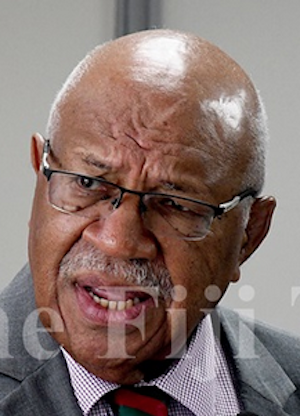
“They started with the C-12, but now it’s C-24 members of the [UN] committee that talks about decolonisation.
“I was wondering if anyone would complain about my going [to Kanaky New Caledonia] next week because C-24 met last week and there was a vote on decolonisation.”
According to an RNZ Pacific interview, Rabuka had told the Kanak independence movement:”Don’t slap the hand that has fed you.”
Fiji was the only country that voted against the UN resolution while 99 voted for the resolution and 61 countries, including colonisers such as France, United Kingdom and the United States, abstained.
Another coloniser, Indonesia (West Papua), voted for it.
“I thought the [indigenous] people of the Kanaky of New Caledonia would object to my coming, so far we have not heard anything from them.
“So, I am hoping that no one will bring that up, but if they do bring it up, we have a perfect answer.”
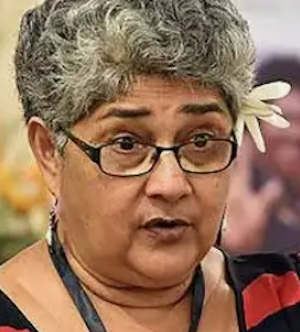
Human rights advocate Shamima Ali said in a statement on social media it was “unbelievable” that Prime Minister Rabuka claimed to be “a serious student of colonisation and decolonisation” while leading a government that had been “blatantly complicit in the genocide of innocent Palestinians”.
“No amount of public statements and explanations will save this Coalition government from the mess it has created on the international stage, especially at the United Nations.
“We are ashamed of having a government that supports an occupation, votes against a ceasefire and does not want decolonisation in the world.
“Trust between the Fijian people and their government is being eroded, especially on matters of global significance that reflect on the entire nation.”
According to the government, Fiji is one of two Pacific countries which are members of the Special Committee on Decolonisation or C-24 and have been a consistent voice in addressing the issue of decolonisation.
Through the C-24 and the Fourth Committee, Fiji aligns with the positions undertaken by the Pacific Islands Forum (PIF) and the Melanesian Spearhead Group (MSG), in its support for the annual resolution on decolonisation entitled “Implementation of the Declaration on the Granting of Independence to Colonial Countries and Peoples”.
Government reiterated its support of the regional position of the Forum, and the MSG on decolonisation and self-determination, as enshrined in the UN Charter.
The Fiji Permanent Mission in New York, led by Filipo Tarakinikini, is working with the Forum Secretariat to clarify the matter within its process.
Rabuka is currently in Samoa for the 2024 Commonwealth Heads of Government Meeting (CHOGM), which is being held in the Pacific for the first time.
